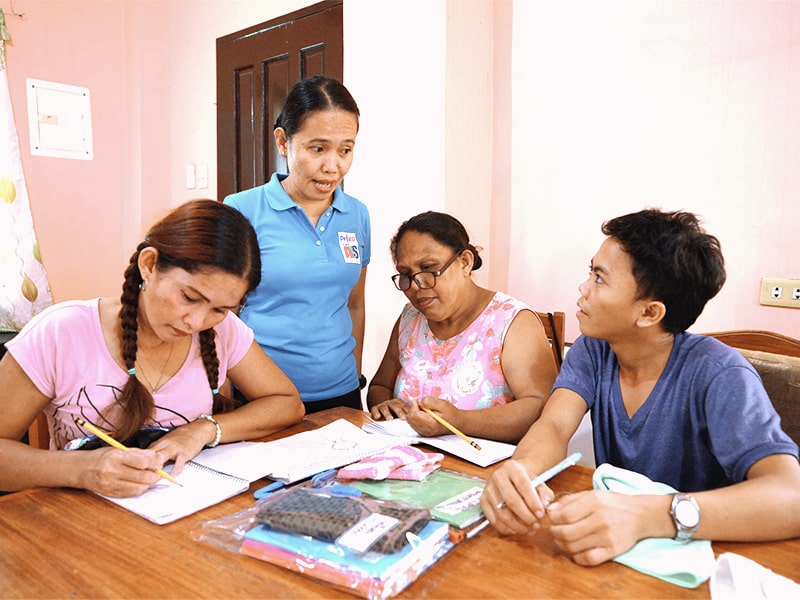The COVID-19 has challenged the education system, revealing its fragility.
Once again, the Spanish education system strikes and makes students pay for its structural failures and errors, its inability and its complete incompetence.
Virtual education is poorly designed and ineffective, not prepared to replace face-to-face classes, and can be described as ineffective, insufficient, chaotic, useless, inept and maladaptive – at least in most of our public universities.
The underlying problem is that we live in a digital world characterized by technology and the virtual dimension in all facets of life. But, at the same time, we live with an analogical educational system that has hardly evolved in the last centuries. We students are digital people who are in an analogical institution, governed by authorities and teachers with analogical minds.
An emergency such as the coronavirus has brought out all the miseries in the system and made it clear that we have no plan B for virtual learning. And the problem is not one of tools and technologies – training platforms, tools for synchronous and asynchronous communication… – because all the technology needed for learning has already been invented and we use it every day.
The problem is that our educational model based on the teacher offering content to the student to memorize and repeat in an exam, is exhausted. And when the classrooms are closed, the teacher reproduces this pattern through online training, increasing the student’s requests and workload, as a cover for incompetence.
The fact is that the use of technology in education does not consist of the teacher using a video projector in class to read slides. That is the same as teaching a master class. When this is projected into on-line training, it is nothing more than reproducing the old and obsolete patterns of education through the Internet.
We students feel helpless in the absence of teachers to guide and inspire us in our learning, a lack that becomes more acute when classes disappear.
In the end, all this will condition my term. From this and from some final exams that are undetermined in terms of date and content. On the agenda are discussions on where to move the face-to-face final examinations – as if this were the most important issue in education, final examinations – even if this means taking away students’ holiday time.
The quarantine period is not a break for anyone. The situation is becoming complex for everyone. No one knows what to do and the uncertainty is overwhelming.
The faculties, the rectorships and the teaching activity cannot take advantage of the freedom to teach as a patent of corsage, since it shows the incompetence of an education that is incapable of providing answers in times of crisis. The institutions, completely overwhelmed by the situation, are playing with the future, the emotional balance and the mental health of the students.
For me, the situation is not being so critical, there are students who are in much worse situations. Luckily I have all my basic needs covered, no member of my family is sick, I have a computer with which I can access the virtual campus every day and my mental health is stable.
But what happens in those houses where not even one euro a day goes in? What happens to those who were already suffering economically before the pandemic? Or to those who do not have the economic resources to cover their physiological needs decently?
What about those who have to choose between access to the internet and eating? What about those who live in places where there is hardly any coverage? What about those who do not have an electronic device to be able to access e-learning? And like these, an infinite number of cases.
Sorry to say, but your final exams are not the last of the priorities in a situation like this. Once again, teaching shows that learning does not matter, it is not the goal.

The system based on giving a grade to the student based on the memorization of some contents that are “spat out” in a final exam, where the student is subjected to a stress that tests his safety and his own health, is broken. This cannot stand up any longer, let alone in a situation like this.
I didn’t have to break out into a pandemic to expose these mistakes, because all of us students have been suffering from them for a long time – even though the situation we are living in has made the frustration even worse.
Even in the face of this situation, resistance to change remains intact by authorities and teachers, persevering in an incompetence that threatens a whole generation of young people “trapped” in the universities. We are at risk of being zero handed in to a digital world.
There’s something else I’d like to comment on:
YOU REFUSE TO GIVE THE GENERAL APPROVAL
I think it is undeniable that the general approval is an unfair measure.
We mainly put ourselves in this position when we find ourselves in the situation I expressed earlier – all my basic needs are covered, I have the necessary resources to continue with “virtual teaching”, the family and home situation is good But again, our “pleasant” situation takes away the little humanity and solidarity we had left, forgetting those who are not in the same condition as us.
I understand all those people who wanted to stand out with their grades and who would never settle for a simple pass. I can even understand the anger felt by those who work and consider it unfair to have the same “grades” as those who deserve an “insufficient”.
If the few classes that I have received this term in Political Philosophy have taught me anything, it is that politics and values depend on and change according to the context. And context is critical.
When the situation is desperate, drastic measures must be taken to avoid greater evils. However, we must try to ensure that the “common good” is achieved as much as possible.
We need the educational authorities to make their decisions based on humanistic and psychological criteria.
The virus is annihilating us, don’t you do it too!
It is my hope that the lessons of COVID-19 will initiate a path for a profound transformation of our educational system. The one we have cannot stand another day.

